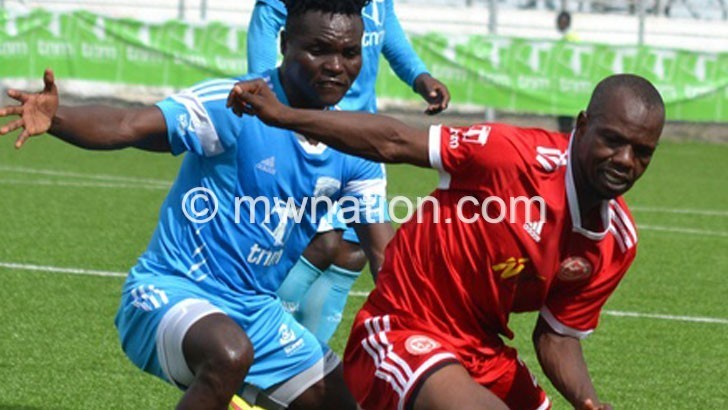FAM claims club licensing on course
Club licensing system, which Fifa introduced to reinforce club’s compliance with basic requirements, enters its fifth year with a little progress made in its quest to professionalise the top-flight TNM Super League.
Introduced in 2012, but adopted in Malawi in 2015, the system has five pillars such as financial, sporting, legal, administrative and infrastructure.

Financial criteria, which is aimed at ensuring team’s economic and financial capability, ensures that clubs prepare financial statements containing a balance sheet, a profit and loss account and a cash flow statement. Sporting criteria aims at ensuring that clubs have professional players nurtured through progressive youth development structures under qualified coaches while through infrastructure criteria, clubs are expected to have standard stadiums for matches and training.
Clubs are also obliged to have permanent secretariats with qualified personnel to run their administration and the legal status of the clubs clearly stated in documents such as articles, constitution or statutes.
Fifa states that the five criteria are aimed at safeguarding the credibility and integrity of clubs and improving the level of professionalism in national leagues.
However, five years down the line these objectives are far from being achieved in the TNM Super League.
The national league is still semi-professional with the lowest sponsorship in the southern Africa region which is at K90 million.
Apart from the TNM Plc sponsorship, the league solely relies on gate collections as its main source of revenue.
Consequently, clubs operate on a shoe-string budget with some failing to fulfil their fixtures due to financial problems.
Football Association of Malawi (FAM) club licensing and compliance manager Casper Jangale rated the success of the club licensing at 50 percent.
He said: “There was a time players did not have contracts. There was a time we had chaos in players’ transfers. Before club licensing, clubs did not care whether they had offices. “There was a time clubs did not bother to have youth or reserve teams. They didn’t even have offices.
“Clearly defined ownership of Super League clubs never existed. But we can now talk of professionalisation and commercialisation of clubs because of club licensing.”
Jangale, however, confesses that club licensing’s biggest challenge is the financial criteria.
He said: “We have registered some success in some areas, but we have numerous challenges in financial criteria mainly because our clubs have only one source of revenue—gate collections—which is not enough.
“I would say this problem is beyond club licensing. It starts with Sulom. While elsewhere clubs have other sources of revenue, here they only survive on gate revenue if they do not have a steady sponsor.
“This is because Sulom [Super League of Malawi]has not done enough to enable clubs to benefit from other avenues like TV rights, shirt sponsorship and image rights like it is in other leagues such as the English Premiership.”
Jangale said the only solution is for Sulom and lower leagues to embrace club licensing as well.
But Sulom general secretary Williams Banda said most of the challenges are there because FAM sidelines the league runners from the club licensing process.
“If you look at the club licensing set up, there is nowhere that Sulom is involved. Not even one Sulom executive member is in first instance body [FIB],” he said.
Banda said Sulom struggles to get a viable TV rights deal because of the country’s economic environment.
“You cannot compare Malawi’s economic environment with that in which the English Premiership operates.
“We are a small economy, but still we are making progress. Even the English Premiership did not start big in its TV rights deals,” he said.
Soccer analyst George Chiusiwa observed that both Sulom and FAM are to blame for the failure of club licensing.
“There is no way FAM can point a finger at Sulom on the challenges facing club licensing. FAM as the mother body, must take responsibility. In the same vein, Sulom as mother body of the clubs must also be exemplary.
“In other words these two bodies must work together for the betterment of our game. There is no way club licensing can work if they [FAM and Sulom] work in isolation,” he said.
Interestingly, FAM president Walter Nyamilandu in his manifesto dubbed ‘Raising the Bar’, promised to decentralise club licensing to Sulom.
“Club licensing regiment will be reviewed in 2020 to address issues that have been experienced so far and decentralise club licensing management to Sulom secretariat,” reads in part Nyamilandu’s manifesto.





